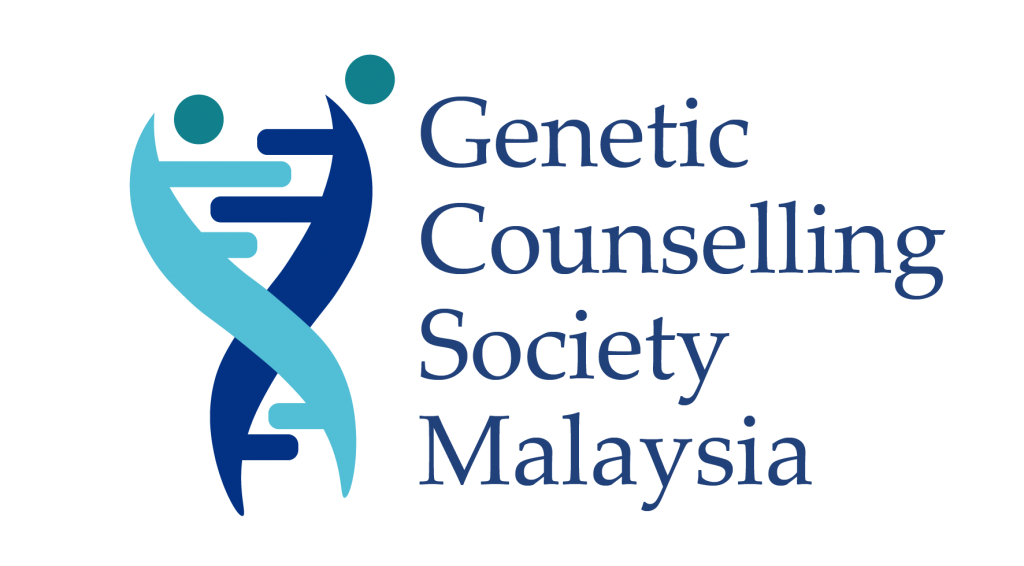Genetic Counselling
Please email us at admin@gcsocietymalaysia.org.my for further enquiries on finding a genetic counsellor near you.
What is Genetic Counselling?
Genetic counselling is the process where trained professionals, also known as genetic counsellors, review the genetic aspects of illnesses and share this knowledge with those who seek such counselling. Those who seek genetic counselling may have a disorder themselves and be concerned about their family and vice versa, and wish to understand and assess potential risks to themselves or their offsprings and so on. Genetic counselling can help families to understand the significance of genetic disorders in the context of cultural, personal, and familial situations.
Genetic counsellors now work in many capacities besides the traditional setting of the hospital. They work in the fields of education, administration, policy-making, as well as work shoulder-to-shoulder with scientists and medical doctors in interpreting test results.
What is the role of a Genetic Counsellor?
Genetic counsellors play an important role as part of a healthcare team. They are trained to present often complex and difficult-to-comprehend information to families and patients about genetic risks, testing, and diagnosis; discuss available options; and provide counseling services and appropriate referrals. They also provide supportive counselling services, serve as patient advocates, and would be able to refer individuals and families to other health professionals and community depending on their needs.
Do I need Genetic Counselling services?
Genetic testing is voluntary and has benefits as well as limitations and risks. The decision about whether to be tested is a personal and complex one. A genetic counsellor can help by providing information about the pros and cons of the test and discussing the social and emotional aspects of testing. It is not unusual for multiple genetic counselling sessions to occur and, at a minimum, include a pre-testing and post-testing session.

Photo is for illustrative purposes only.
In general, a genetic counselling session aims to:
1. Increase the family’s understanding about a genetic disease(s), the risks and benefits of genetic testing and disease management, and available options;
2. Identify with the individual and family the psychosocial tools required to adjust to potential outcomes; and
3. Reduce the family’s anxiety.
What happens in a Genetic Counselling session?
During the initial genetic counselling visit, the genetic counsellor will determine why you (“the patient”) are seeking genetic counselling, identify what information you wish to obtain from the session, collect and record a family history, and assess and record your psychosocial history.
Among the topics discussed during a pre-test session are the clinical presentation of the condition(s) you may be at risk for, the pattern of genetic inheritance of the condition, risk of recurrence, available testing procedures and test limitations, reproductive options, and follow-up procedures if needed. General questions relating to suggested treatment, therapy, and the function of related proteins are also addressed. Referrals may be made to specialists regarding specific issues which fall outside the scope of genetic counselling practice.
If you decide to have genetic testing performed, the genetic counsellor is often the point person to communicate the results to the patient/family. However, the post-test session involves more than the provision of medical information and often focuses on helping families cope with the emotional, psychological, medical, social, and economic consequences of the test results. In particular, psychological issues such as denial, anxiety, anger, grief, guilt, or blame are addressed and, when necessary, referrals for in-depth counseling are offered. Information about community resources and support groups are provided to the patient/family.
At the conclusion of the genetic counselling sessions, you should be offered a written summary of the major topics discussed. The summary is often provided in the form of a letter which serves as a permanent record of the relevant information discussed, as well as relaying additional information that may have become available after the final counselling session.
Source and additional reading
1. World Health Organisation (WHO) – Genetic Counselling Services
2. National Center for Biotechnology Information, U.S. National Library of Medicine – Chapter 4: Genetic Counselling
3. Genetics Home Reference: Why Might Someone Have a Genetic Consultation?

